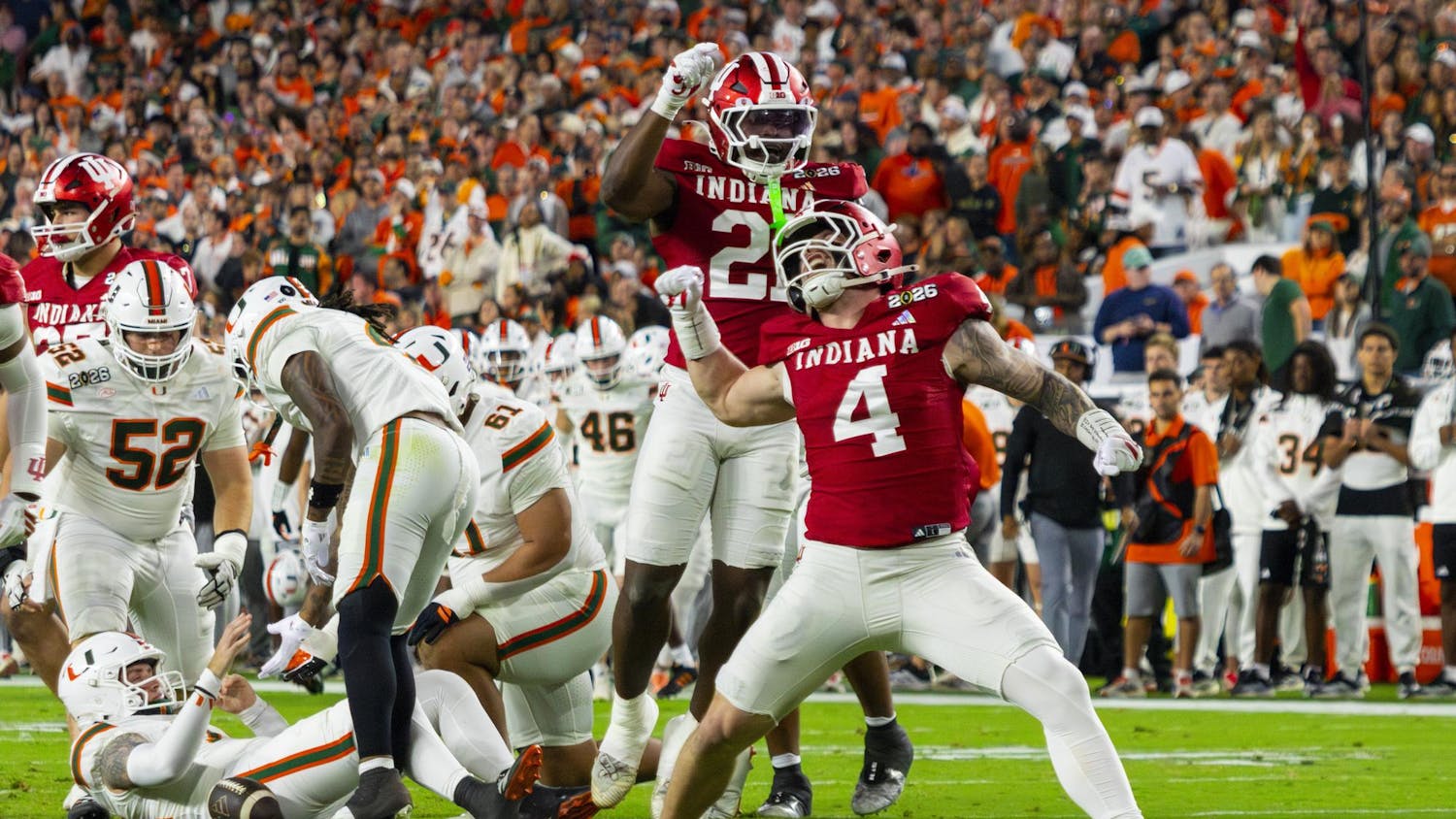Indiana’s 2016 legislative session brought controversial bills in the realm of public health, including those focused on LGBT issues and abortion stipulations.
Many of these bills received negative backlash regardless of their passage or failure, as was discussed at Monday’s 2016 Public Health Legislative Update.
At the event, panelists recapped the notable bills from the year and outlined methods for student advocacy and engagement with them.
The Indiana Minority Health Coalition and students in the Public Health Policy and Politics course in the School of Public Health partnered for the event.
“Our goal is for you to see how public health has a role in policy formation and advocacy,” said Naima Gardner, a former student of the course and an intern at the IMHC.
House Enrolled Act 1337, a recently passed bill prohibiting a woman from getting an abortion after learning the fetus may have a genetic defect or disability, was a major topic of discussion, both for panelists and audience members.
Sen. Mark Stoops, D-Bloomington, who represents much of Monroe County, said some of the controversial bills from the year were the result of a Republican super majority legislature that feels the need to cater to a specific pool of voters who carry weight during the primaries.
“I think many Republicans would not have passed bills like the abortion bill without pressure from their primary based, and I think some more of the bills concerning civil protections would have passed,” Stoops said.
The need to appeal to a voter base with deeply conservative, religious values mirrors what is happening on the national level with the GOP race for a presidential nominee, Stoops said.
“This is just like the Trump and Cruz race on the federal level,” Stoops said. “They are beholden to their base and now they’ve painted themselves into a corner.”
Although they all failed, many bills in session were discriminatory toward the LGBT community.
One would have forced people to use bathrooms that align with the gender they were assigned at birth, not the gender with which they identify. Others failed to include transgender people in possible protections.
Lizzy Bartlet and Sam Armbruster, two students in the B650 class, presented a policy brief about these issues, which they hoped to use to educate legislators.
“Some legislators came right out and said they weren’t even sure what transgender meant,” Armbruster said. “We just want to clear up some of the misinformation so they can make informed decisions and understand why these civil protections are necessary.”
Other bills addressed included new limitations to the Healthy Indiana Plan 2.0, failed bills to combat food deserts — areas in the state with limited access to fresh food — and failed bills requiring prescriptions for certain drugs that are commonly used in meth production.
Stoops encouraged students to make policy briefs, call or write letters to express their opinions and help educate their policy makers. Although they are often seen as experts, Stoops said it is difficult for legislators to keep up with different bills, so outside information can be very influential in their decisions.
“Contrary to popular belief we don’t know everything and we may be specialists on certain areas but certainly not on the full breadth of issues we have to deal with in the general assembly,” Stoops said. “Sometimes people are voting on things they’ve never heard addressed before.”
Gardner said students should pay attention to the bills that concern their values and educate themselves as much as possible. Issues of public health, she said, tend to be extremely personal, and warrant extra attention.
“Try to figure out your perspective,” Gardner said. “Then research your representatives and figure out what they stand behind, so you can see who best reflects your values.”
Although many of the bills discussed at the event got saw heavy media coverage while in session, Gardner urged students to remember that oftentimes the most important issues receive minimal coverage.
“Oftentimes the most influential issues are the least sexy,” Gardner said. “And these are the ones where lawmakers most need to hear our voices.”





